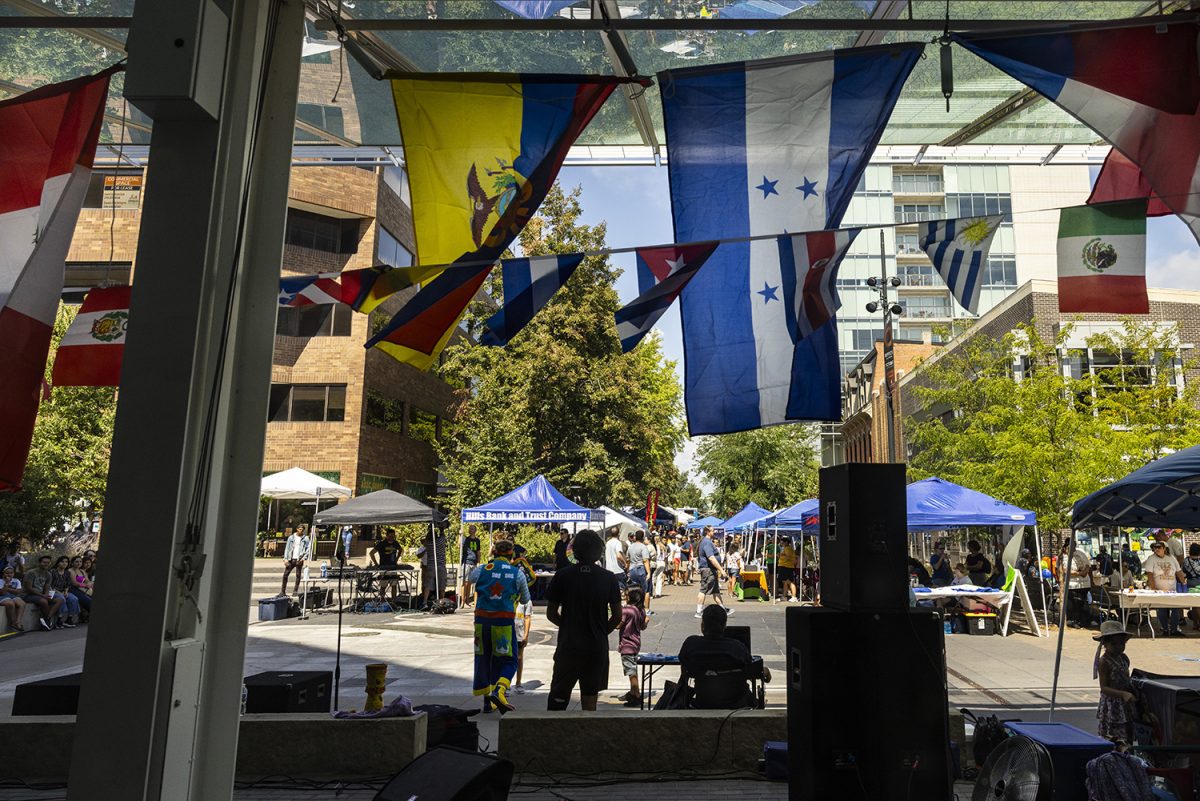Americans are uneducated about the diversity of Latin America, and current examples of Hispanic representation are not helping the cause.
As Hispanic Heritage Month reaches a middle point, a few things may come to mind when you imagine how to celebrate it. This may include Mariachi bands, hat dancing, chips, tacos, and burritos. To the average Iowan, Hispanic Heritage celebrations may not differ greatly from a Taco Tuesday.
But how culturally inclusive is this representation of Hispanic heritage?
How familiar are you with dishes like arroz con gandules, sancocho, and platano maduro? What about dances like Samba, Bachata, Merengue, Salsa, Tango?
If you are familiar with these terms, how often do you see them displayed in public? All these dishes and dances originate from the Caribbean islands and South America.
Caribbean and South American cultures are not included in Iowa’s Hispanic Heritage celebrations. This is detrimental to how we celebrate Hispanic heritage. Lacking inclusivity within Hispanic celebration causes lack of representation for certain groups and lack of education for everybody involved.
In Iowa and in other parts of the country, Hispanic Heritage Month and other Hispanic celebrations have become Americanized faux-Mexican celebrations. Hispanic representation is being confined to tacos and sombreros. As a result, international Hispanic identity is only being portrayed through the lens of Mexican American cultural elements.
It’s not hard to feel alienated in your own community as a Hispanic/Latino growing up in the United States. In a country where Mexicans make up 60 percent of the Hispanic population, the farther you get from Mexico, the more “exotic” you become. A feeling of alienation comes when celebrations that are supposed to pertain to your culture end up being from an entirely different one, and that other culture represents the norm you’re supposed to fit into.
Growing up in a South American family living in California, every Hispanic celebration I attended was Mexico-themed. Upon arriving in Iowa, that trend has remained consistent. In both California and Iowa, Mexicans represent the vast majority of Hispanics. That is not to say that other Hispanic and Latino cultures are not present in these regions.
The terms “Hispanic” and “Latino” are umbrella terms, meaning they encompass multiple ethnocultural groups and societies. The terms are meant to describe, in the simplest manner, mixed-race people who speak Latin-based languages.
While the definition given by these terms is not entirely inaccurate, it is incredibly broad, and does not allow for independent representation of specific cultures. This causes the dominant subgroup, people from Mexico, to become representative of Hispanics and Latinos as a whole.
Mexico’s proximity and historical ties to the U.S. also play a role in its cultural dominance. In 1930, the term “Mexican” was introduced to the U.S. census to document all mixed-race Spanish speakers in the country, regardless of their country of origin or ethnic background.
Considering the advancements made in education and increased globalization, the Mexican label should no longer represent every person south of the border.
We can and should continue to celebrate Mexican culture. We must learn to identify Mexico as a subgroup within the much larger Hispanic identity. Events that appeal only to people of Mexican descent should not be called “Hispanic events” when they could be more appropriately labeled.
Schools should enforce Ethnic Studies programs that educate students on immigration trends from all parts of Latin America to the U.S. Among the multitude of groups that have immigrated to the U.S., each has left its own influence on American culture, making each of them equally important to the history of this country.
So, the next time you find yourself at a Hispanic celebration where the only meals available are tacos and burritos, ask yourself, “How many Hispanic identities am I celebrating?”











